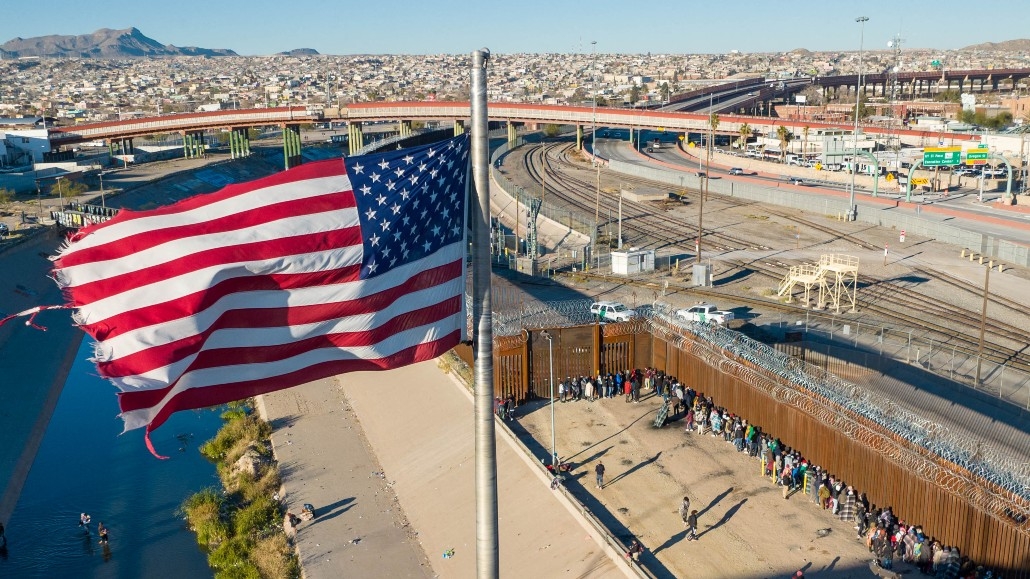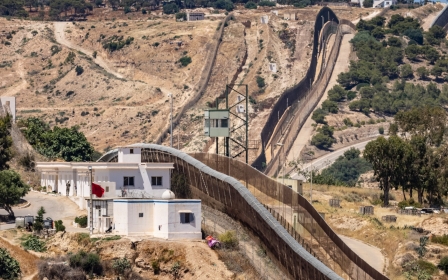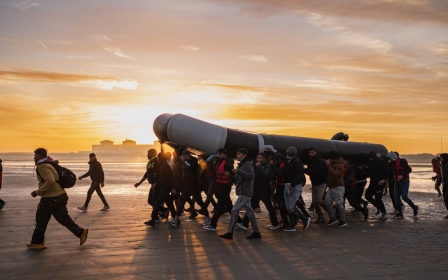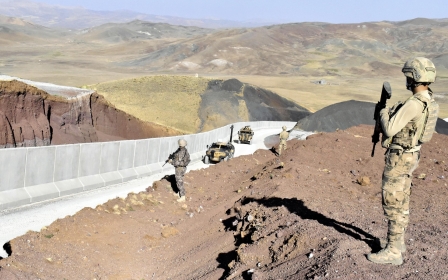US Supreme Court upholds widely condemned immigration expulsion policy

The US Supreme Court has temporarily stopped the lifting of Title 42, an immigration policy that allows the government to expel migrants who crossed the border into the country, saying the policy will remain in effect until legal challenges are sorted out.
In a 5-4 decision on Tuesday, Supreme Court justices halted a district court's ruling that would have lifted the measure, adding that it would hear arguments in the case in February.
Title 42 was enacted in March 2020, the month that the World Health Organization labelled the spread of Covid-19 a pandemic, and the restrictions were deemed a public health measure in order to curb the spread of the virus.
However, more than two years later the measure is still in place and the administration of US President Joe Biden has continued to use it to expel people crossing into the US.
Biden said the overturning of the policy is "overdue", but added that, because of the Supreme Court's decision, "in the meantime, we have to enforce it".
New MEE newsletter: Jerusalem Dispatch
Sign up to get the latest insights and analysis on Israel-Palestine, alongside Turkey Unpacked and other MEE newsletters
A judge for the District Court of the District of Columbia ruled last month that the policy did little to advance public health and instead did much to endanger immigrants, and then set a 21 December deadline for terminating the measure.
However, a group of 19 Republican majority states then appealed, which led it to come to the Supreme Court.
"The Supreme Court has allowed Title 42 to remain in place temporarily while the case is ongoing, and we continue to challenge this horrific policy that has caused so much harm to asylum seekers and cannot plausibly be justified any longer as a public health measure," Lee Gelernt, a lawyer with the American Civil Liberties Union leading the challenge against Title 42, said in a statement.
'Worst xenophobic impulses'
Immigration advocates warned that the continuation of the expulsion policy would have untold harm to the people trying to enter through the US southern border.
"The majority of the Justices have now, effectively, sanctioned the perpetuation of refoulement and will be responsible for what the lower court called 'irreparable harm' that befalls asylum seekers expelled under Title 42," said Yael Schacher, Refugees International Director for the Americas and Europe.
Earlier this month, CNN reported that US border authorities in the Rio Grande Valley were encountering up to 1,200 people at the border daily. While most of the people trying to cross into the US are coming from South America, there are also people coming from Asia, Africa, and the Middle East.
In June, the first Muslim refugee shelter was set up in Tijuana, Mexico, near the US border. It holds up to 150 people and can house them for up to three months.
The surge of people at the US-Mexico border has also created a crisis in itself, with rights groups reporting increased violence there.
"Every day that the expulsion policy remains intact, vulnerable individuals are left in legal limbo and exposed to grave dangers," said Melissa Crow, director of litigation at the Center for Gender and Refugee Studies.
"Human rights investigators have documented over 13,000 violent attacks against people expelled to Mexico under the Biden administration, a figure that represents just the tip of the iceberg."
Diana Kearney, senior legal advisor at Oxfam America, said the court's decision was "not based on our laws but rather on our country’s worst xenophobic impulses".
"This cruel ruling ignores our nation’s legal obligations to respect fundamental human rights, and exposes some of the world’s most vulnerable people to incredible violence."
Middle East Eye delivers independent and unrivalled coverage and analysis of the Middle East, North Africa and beyond. To learn more about republishing this content and the associated fees, please fill out this form. More about MEE can be found here.




